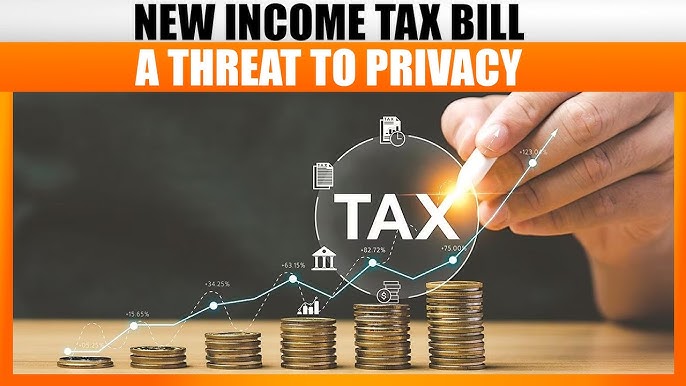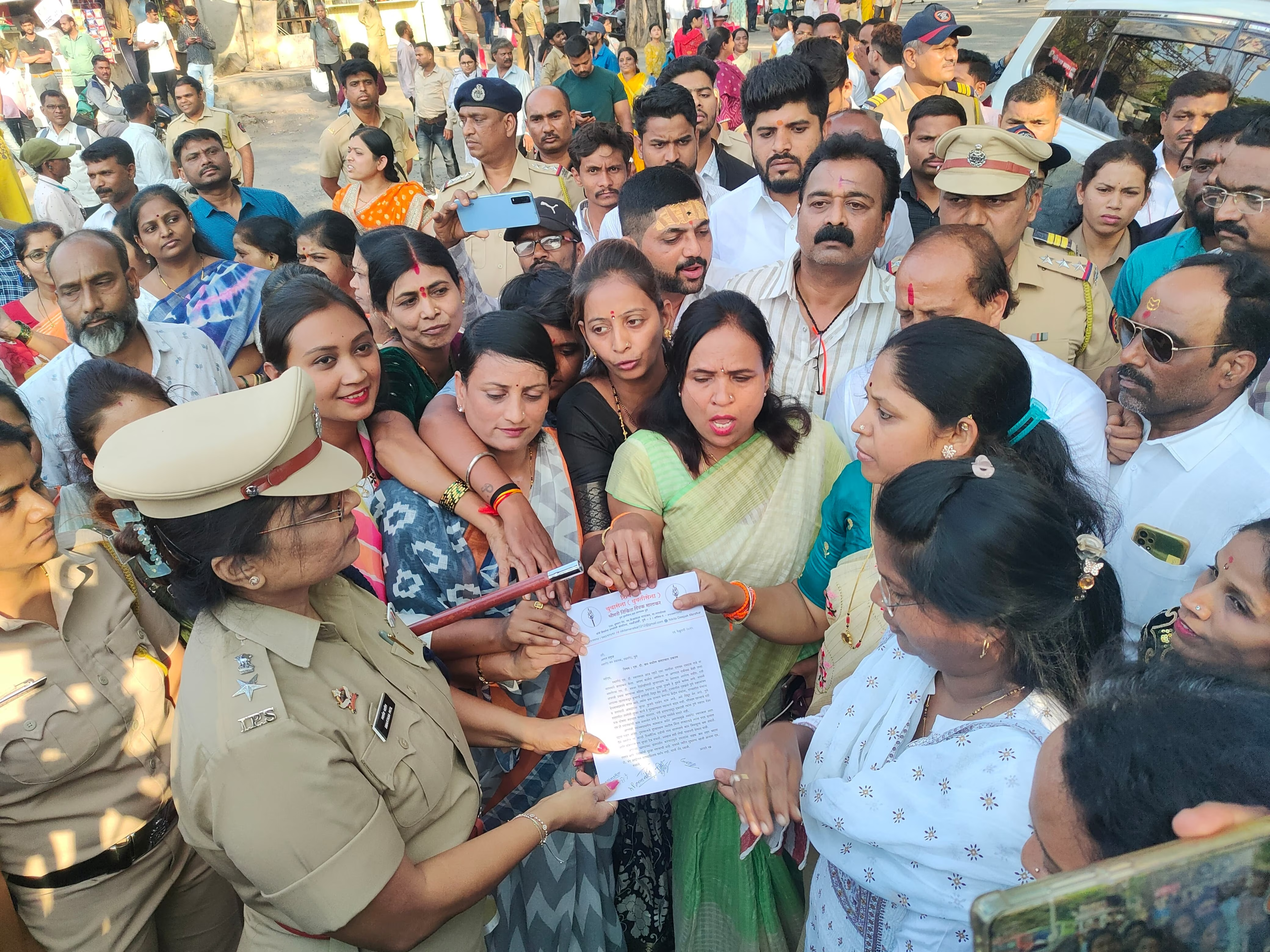Home / trending / PAN Card Holders Beware: Press Information Bureau Warns Against Phishing Scams Targeting India Post Payments Bank Customers
PAN Card Holders Beware: Press Information Bureau Warns Against Phishing Scams Targeting India Post Payments Bank Customers
By: My India Times
5 minutes read 894Updated At: 2025-01-11

In a recent development, customers of India Post Payments Bank (IPPB) have been warned about a rising phishing scam that involves fraudulent messages claiming that their bank accounts will be blocked unless they update their PAN card details. These deceptive messages, which have been circulating through various communication channels, include links that redirect unsuspecting victims to fake websites, designed to steal their sensitive personal and financial information.
What is Phishing and How Does It Affect You?
Phishing is a form of cybercrime in which scammers impersonate legitimate organizations or entities to trick individuals into disclosing sensitive information such as passwords, credit card details, or other personal data. In this case, scammers are posing as India Post Payments Bank representatives, claiming that account holders must urgently update their PAN details to prevent account blockages.
While the messages appear legitimate at first glance, they are fraudulent, and the links they contain lead users to fake websites designed to harvest private information. By entering personal details on these sites, victims unknowingly provide criminals with access to their financial accounts, potentially leading to identity theft, financial loss, and other serious consequences.
PIB’s Official Statement on the PAN Card Scam
In response to these phishing attempts, the Press Information Bureau (PIB) issued an official statement debunking the fraudulent claims. The PIB clarified that India Post Payments Bank does not request PAN card updates via text messages, nor does it send any communication threatening account blockages.
On social media platform X, the PIB stated, “The claim that IPPB accounts will be blocked within 24 hours if PAN details are not updated is false. India Post never sends such messages.” They further urged customers to exercise caution and not fall victim to such scams, emphasizing that legitimate organizations, such as IPPB, would never demand such information in such an alarming manner.
Scammers’ Deceptive Techniques and Their Methods
Phishing scammers use a variety of tricks to deceive individuals. Some common tactics include:
Urgent Warnings: Scammers often create a false sense of urgency by warning victims that their accounts will be locked or funds will be frozen unless immediate action is taken. This compels people to act hastily without thinking it through.
Fake Websites and Links: The fraudulent messages contain links that appear to lead to genuine websites but redirect victims to spoofed pages that are designed to look like the official websites of trusted institutions.
Requests for Sensitive Information: Once on the fake website, users are asked to enter personal information such as their PAN card number, bank account details, and even one-time passwords (OTPs) sent to their phones.
Social Engineering: Scammers use psychological manipulation to prey on individuals’ fears, making them believe that failure to comply with the request could result in significant consequences such as account suspension or data loss.
How to Protect Yourself from Phishing Scams
As cybercrime continues to evolve, it’s crucial to be aware of the various types of scams and adopt preventive measures. Here are some essential tips to protect yourself from phishing attempts:
Verify the Source: Always be skeptical of unsolicited messages, emails, or calls, especially those asking for personal information. Verify the authenticity of the message by contacting the organization directly through official channels, such as their customer support number or website.
Do Not Click on Suspicious Links: One of the primary tools used in phishing attacks is fake links. Never click on links or download attachments from unknown sources. Before clicking on a link, hover over it to preview the URL and ensure it leads to a legitimate site.
Enable Two-Factor Authentication (2FA): Strengthen your account security by enabling two-factor authentication. This adds an extra layer of protection, requiring a verification code in addition to your password. Even if someone obtains your login credentials, they will not be able to access your account without the second factor.
Be Wary of Urgency and Threats: Phishing scams often use scare tactics to make victims act quickly. If you receive a message claiming that your account will be blocked or that you’re in danger of losing access to your funds, take a moment to pause and evaluate the situation.
Check for Red Flags: Look for signs that a message may be a scam. These include poor grammar, suspicious email addresses, and generic greetings such as “Dear Customer” instead of addressing you by name. Legitimate institutions always personalize their communication.
Regularly Monitor Bank Accounts: Keep an eye on your financial transactions. If you notice any unusual activity, such as transactions you did not authorize, immediately report it to your bank. This could be an indication that your account information has been compromised.
Educate Yourself and Others: Stay informed about the latest scams and share this knowledge with friends and family members, especially the elderly or those who may be less familiar with online threats. A community that is aware of potential dangers can help prevent widespread damage.
The Role of India Post Payments Bank in Safeguarding Customers
India Post Payments Bank has reiterated its commitment to safeguarding its customers from online threats. The bank regularly updates its security protocols and encourages customers to report any suspicious activity. It also provides useful guidelines on its official website and customer support channels to help users recognize and avoid scams.
Additionally, customers are urged to review and update their security settings, ensuring they are using strong, unique passwords for their online banking accounts. India Post Payments Bank has been actively working to raise awareness about phishing scams and educate users about the importance of securing their personal data.
Final Thoughts: Staying Safe in the Digital Age
In today’s fast-paced digital world, it’s essential to stay vigilant and informed about the risks associated with online activities. Phishing scams are just one example of the many cyber threats that individuals face. By following the safety tips outlined above, you can better protect your personal information and ensure that your online transactions remain secure.
Remember, legitimate organizations like India Post Payments Bank will never ask for sensitive information such as PAN card details via text messages or emails. Always verify the source before acting on any unsolicited request and take proactive steps to safeguard your accounts.
If you have any doubts or concerns about suspicious messages or emails, it is always better to err on the side of caution and report the incident to the relevant authorities.
....In a recent development, customers of India Post Payments Bank (IPPB) have been warned about a rising phishing scam that involves fraudulent messages claiming that their bank accounts will be blocked unless they update their PAN card details. These deceptive messages, which have been circulating through various communication channels, include links that redirect unsuspecting victims to fake websites, designed to steal their sensitive personal and financial information.
What is Phishing and How Does It Affect You?
Phishing is a form of cybercrime in which scammers impersonate legitimate organizations or entities to trick individuals into disclosing sensitive information such as passwords, credit card details, or other personal data. In this case, scammers are posing as India Post Payments Bank representatives, claiming that account holders must urgently update their PAN details to prevent account blockages.
While the messages appear legitimate at first glance, they are fraudulent, and the links they contain lead users to fake websites designed to harvest private information. By entering personal details on these sites, victims unknowingly provide criminals with access to their financial accounts, potentially leading to identity theft, financial loss, and other serious consequences.
PIB’s Official Statement on the PAN Card Scam
In response to these phishing attempts, the Press Information Bureau (PIB) issued an official statement debunking the fraudulent claims. The PIB clarified that India Post Payments Bank does not request PAN card updates via text messages, nor does it send any communication threatening account blockages.
On social media platform X, the PIB stated, “The claim that IPPB accounts will be blocked within 24 hours if PAN details are not updated is false. India Post never sends such messages.” They further urged customers to exercise caution and not fall victim to such scams, emphasizing that legitimate organizations, such as IPPB, would never demand such information in such an alarming manner.
Scammers’ Deceptive Techniques and Their Methods
Phishing scammers use a variety of tricks to deceive individuals. Some common tactics include:
Urgent Warnings: Scammers often create a false sense of urgency by warning victims that their accounts will be locked or funds will be frozen unless immediate action is taken. This compels people to act hastily without thinking it through.
Fake Websites and Links: The fraudulent messages contain links that appear to lead to genuine websites but redirect victims to spoofed pages that are designed to look like the official websites of trusted institutions.
Requests for Sensitive Information: Once on the fake website, users are asked to enter personal information such as their PAN card number, bank account details, and even one-time passwords (OTPs) sent to their phones.
Social Engineering: Scammers use psychological manipulation to prey on individuals’ fears, making them believe that failure to comply with the request could result in significant consequences such as account suspension or data loss.
How to Protect Yourself from Phishing Scams
As cybercrime continues to evolve, it’s crucial to be aware of the various types of scams and adopt preventive measures. Here are some essential tips to protect yourself from phishing attempts:
Verify the Source: Always be skeptical of unsolicited messages, emails, or calls, especially those asking for personal information. Verify the authenticity of the message by contacting the organization directly through official channels, such as their customer support number or website.
Do Not Click on Suspicious Links: One of the primary tools used in phishing attacks is fake links. Never click on links or download attachments from unknown sources. Before clicking on a link, hover over it to preview the URL and ensure it leads to a legitimate site.
Enable Two-Factor Authentication (2FA): Strengthen your account security by enabling two-factor authentication. This adds an extra layer of protection, requiring a verification code in addition to your password. Even if someone obtains your login credentials, they will not be able to access your account without the second factor.
Be Wary of Urgency and Threats: Phishing scams often use scare tactics to make victims act quickly. If you receive a message claiming that your account will be blocked or that you’re in danger of losing access to your funds, take a moment to pause and evaluate the situation.
Check for Red Flags: Look for signs that a message may be a scam. These include poor grammar, suspicious email addresses, and generic greetings such as “Dear Customer” instead of addressing you by name. Legitimate institutions always personalize their communication.
Regularly Monitor Bank Accounts: Keep an eye on your financial transactions. If you notice any unusual activity, such as transactions you did not authorize, immediately report it to your bank. This could be an indication that your account information has been compromised.
Educate Yourself and Others: Stay informed about the latest scams and share this knowledge with friends and family members, especially the elderly or those who may be less familiar with online threats. A community that is aware of potential dangers can help prevent widespread damage.
The Role of India Post Payments Bank in Safeguarding Customers
India Post Payments Bank has reiterated its commitment to safeguarding its customers from online threats. The bank regularly updates its security protocols and encourages customers to report any suspicious activity. It also provides useful guidelines on its official website and customer support channels to help users recognize and avoid scams.
Additionally, customers are urged to review and update their security settings, ensuring they are using strong, unique passwords for their online banking accounts. India Post Payments Bank has been actively working to raise awareness about phishing scams and educate users about the importance of securing their personal data.
Final Thoughts: Staying Safe in the Digital Age
In today’s fast-paced digital world, it’s essential to stay vigilant and informed about the risks associated with online activities. Phishing scams are just one example of the many cyber threats that individuals face. By following the safety tips outlined above, you can better protect your personal information and ensure that your online transactions remain secure.
Remember, legitimate organizations like India Post Payments Bank will never ask for sensitive information such as PAN card details via text messages or emails. Always verify the source before acting on any unsolicited request and take proactive steps to safeguard your accounts.
If you have any doubts or concerns about suspicious messages or emails, it is always better to err on the side of caution and report the incident to the relevant authorities.
By: My India Times
Updated At: 2025-01-11
Tags: trending News | My India Times News | Trending News | Travel News
Join our WhatsApp Channel

Similiar News

US Supreme Court Rejects 26/11 Accused Tahawwur Rana’s Plea to Block Extradition to India
2025-03-08
































































.jfif)









.jpg)



































































































.png)
 (1).png)























